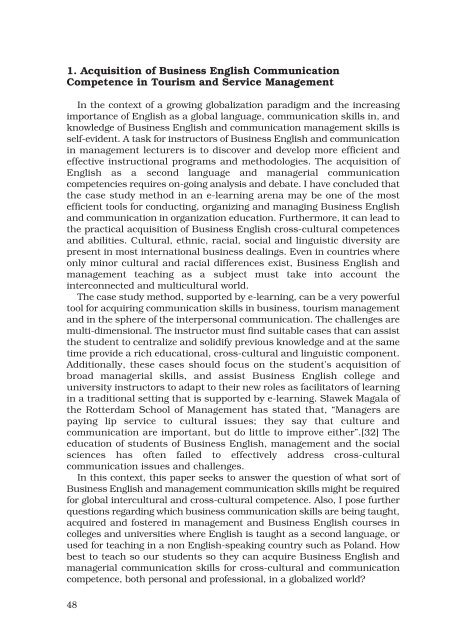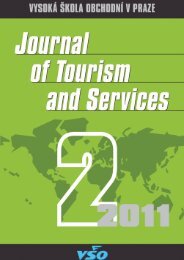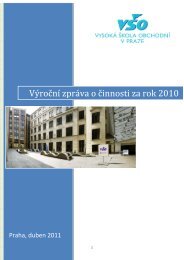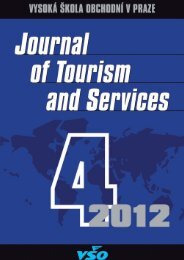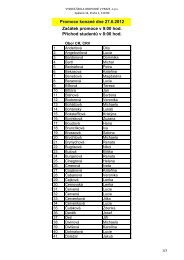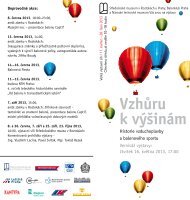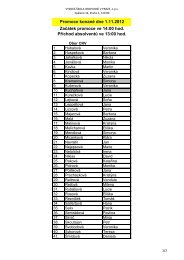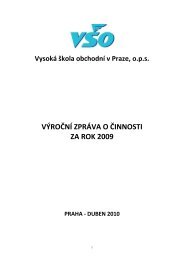Sestava 1 - Vysoká škola obchodnà v Praze
Sestava 1 - Vysoká škola obchodnà v Praze
Sestava 1 - Vysoká škola obchodnà v Praze
Create successful ePaper yourself
Turn your PDF publications into a flip-book with our unique Google optimized e-Paper software.
1. Acquisition of Business English Communication<br />
Competence in Tourism and Service Management<br />
In the context of a growing globalization paradigm and the increasing<br />
importance of English as a global language, communication skills in, and<br />
knowledge of Business English and communication management skills is<br />
self-evident. A task for instructors of Business English and communication<br />
in management lecturers is to discover and develop more efficient and<br />
effective instructional programs and methodologies. The acquisition of<br />
English as a second language and managerial communication<br />
competencies requires on-going analysis and debate. I have concluded that<br />
the case study method in an e-learning arena may be one of the most<br />
efficient tools for conducting, organizing and managing Business English<br />
and communication in organization education. Furthermore, it can lead to<br />
the practical acquisition of Business English cross-cultural competences<br />
and abilities. Cultural, ethnic, racial, social and linguistic diversity are<br />
present in most international business dealings. Even in countries where<br />
only minor cultural and racial differences exist, Business English and<br />
management teaching as a subject must take into account the<br />
interconnected and multicultural world.<br />
The case study method, supported by e-learning, can be a very powerful<br />
tool for acquiring communication skills in business, tourism management<br />
and in the sphere of the interpersonal communication. The challenges are<br />
multi-dimensional. The instructor must find suitable cases that can assist<br />
the student to centralize and solidify previous knowledge and at the same<br />
time provide a rich educational, cross-cultural and linguistic component.<br />
Additionally, these cases should focus on the student’s acquisition of<br />
broad managerial skills, and assist Business English college and<br />
university instructors to adapt to their new roles as facilitators of learning<br />
in a traditional setting that is supported by e-learning. Sławek Magala of<br />
the Rotterdam School of Management has stated that, “Managers are<br />
paying lip service to cultural issues; they say that culture and<br />
communication are important, but do little to improve either”.[32] The<br />
education of students of Business English, management and the social<br />
sciences has often failed to effectively address cross-cultural<br />
communication issues and challenges.<br />
In this context, this paper seeks to answer the question of what sort of<br />
Business English and management communication skills might be required<br />
for global intercultural and cross-cultural competence. Also, I pose further<br />
questions regarding which business communication skills are being taught,<br />
acquired and fostered in management and Business English courses in<br />
colleges and universities where English is taught as a second language, or<br />
used for teaching in a non English-speaking country such as Poland. How<br />
best to teach so our students so they can acquire Business English and<br />
managerial communication skills for cross-cultural and communication<br />
competence, both personal and professional, in a globalized world<br />
48


